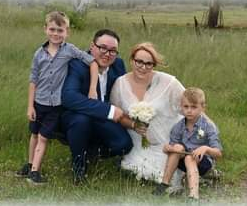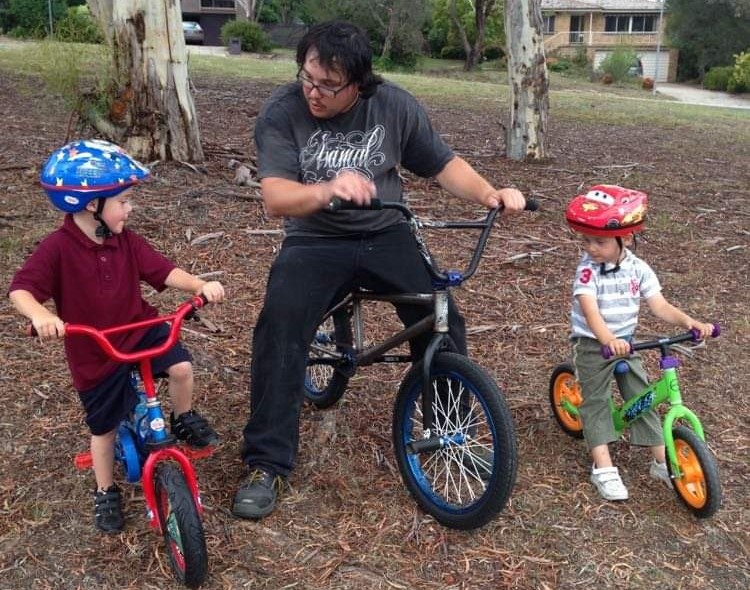Canberra father of two young boys, Harrison Carey, 35, was also a keen BMXer and much-loved husband when he died suddenly from epilepsy last year.
One of the 300 Australians who lose their life to epilepsy each year, Harrison died from Sudden Unexpected Death in Epilepsy (SUDEP), the most frequent cause of death from epilepsy.
“I didn’t know about SUDEP, Harrison didn’t know about SUDEP,” says his widow, Charley Carey, 37. “It’s not something people talk about, if we had known, we might have done things differently. We went to all his specialist appointments, and no one ever mentioned SUDEP.”
SUDEP occurs when an otherwise healthy person with epilepsy dies, often in their sleep, and no cause for the death can be found. There may or may not have been a seizure.
“Discussing SUDEP is tough, but the most difficult conversation is the one you don’t get to have. Nothing is more difficult than death. If I can raise awareness, even if it just stops one family going through this, then that’s what I have to do,” Charley says.

Charley and Harrison met when her youngest son Madden was just three months old, and Kaidyn was 19 months old. Harrison fast became a father to the little ones he proudly called “his boys”, introducing them to BMX.
Today, 18 October, is SUDEP Action Day.
According to Epilepsy ACT, more than 8,000 ACT residents live with epilepsy, and the annual incidence of SUDEP is about one in 1,000 adults with epilepsy and one in 4,500 children with epilepsy.
SUDEP risk factors include: uncontrolled or frequent seizures; tonic-clonic seizures, particularly if these happen at night or during sleep; frequent seizure activity; seizures that begin at a young age; many years of living with epilepsy; missing doses of medication; and drinking alcohol.
“The exact cause of SUDEP is not yet understood, but there are things we can do to manage the risk of SUDEP like taking your medication as prescribed and on time,” says Fiona Allardyce, CEO of Epilepsy ACT.
“Knowing your seizure triggers is important so that you can avoiding them as much as possible. Triggers are different for everyone and can be anything from a certain smell, to flickering lights, stress, or not getting enough sleep. Avoid drinking too much and illicit drugs. Ask your doctor about your risks, and make sure your family and carers are trained in seizure first aid,” Fiona says.
Epilepsy ACT encourages family members and people with epilepsy to get seizure first aid training for free in their Understanding and Managing Epilepsy and Administration of Emergency Medication courses. Both courses can be completed in just two hours.
Charley, Madden and Kaidyn continue to visit Harrison’s favourite spot, taking him Maltesers and diet colas on special occasions.
“I don’t want to forget my husband. I want to honour him. He was in the prime of his life with so much to look forward to,” Charley says.
For help managing epilepsy or support in the wake of SUDEP, call Epilepsy ACT on 6287 4555. You can call the National Epilepsy Support Service, anywhere in Australia, Monday-Saturday 9am-7pm on 1300 761 487.
To help Epilepsy ACT support people with epilepsy, you can donate or take part in through the Walk for Epilepsy until 25 October at walkforepilepsy.org.au.
For the latest about SUDEP, visit sudep.org.
Canberra Daily is keen to hear from you about a story idea in the Canberra and surrounding region. Click here to submit a news tip.



